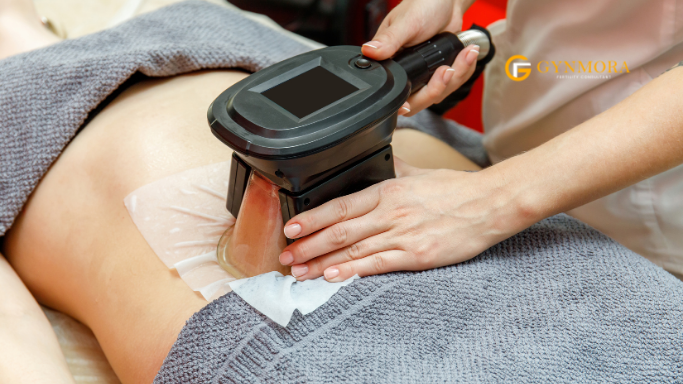How Much Is It To Freeze Your Eggs

Egg freezing is an empowering option for women wanting to preserve their fertility for future family planning. That said, be mindful that this will set you back a few dollars and cents. In this ultimate guide, we break down the costs of egg freezing, what contributes to those costs, and what you can do to mitigate them.
How Much Is It To Freeze Your Eggs?
There Are Financial Aspects to Egg Freezing One cycle of egg freezing costs about $10,000 to $20,000 in the U.S. This estimated amount usually consists of:
- Initial Consultation and Testing: Testing to evaluate both ovarian reserve & general reproductive health
- Ovarian Stimulation Drugs: Medications that get your ovaries to produce more eggs
- Monitoring appointments: Regular blood tests and ultrasounds to check how you are responding to the medications.
- Egg Retrieval Procedure: A surgical procedure to retrieve eggs from your ovaries.
- Anesthesia Charges: Costs related to sedation throughout the retrieval.
- Costs of Laboratory: For processing, testing, and freezing the eggs
These costs can vary depending on geographic location, clinic accolades, and personal medical needs, but keep this in mind.
Breakdown of Egg Freezing Expenses
So, where exactly does the money go?
1-Initial Consultation and Pre-Treatment Testing
Your egg-freezing journey starts with an initial consultation and a series of tests to assess your fertility health. These may include blood work, ultrasounds, etc. The price range for this phase is $500 to $1000.
2-Ovarian Stimulation Medications
You receive a set of medications to make multiple eggs from your ovaries. These drugs generally range in price from $4,000 - $6,000 each cycle. The total price range differs according to your protocol as it depends on the dosage and medications needed.
3-Monitoring Appointments
The stimulation period requires close monitoring. Appointments such as blood work and ultrasounds confirm that your body is responding correctly to the medications. Monitoring expenses alone can cost between $1,000 and $2,000 per cycle.
4-Egg Retrieval Procedure
Egg Retrieval Egg retrieval is a fundamental surgical procedure before you wake up. The cost of This Step Generally Ranges From $6,000 to $15,000, depending on your clinic and location!
5-Anesthesia Fees
Egg retrieval is an uncomfortable procedure, so they do it under anesthesia. Anesthesia fees can be anywhere from $600 to $1,000.
6-Laboratory and Egg Freezing
Once retrieved, your eggs are assessed and then frozen via vitrification. The laboratory fees for this process are typically between $1,000 and $2,000.
7-Storage Fees
After freezing, your eggs must live in unique places. Typically, this costs about $500–$1000 per year. Discounted multi-year storage packages are also available at some clinics.
Factors Influencing Egg Freezing Cost
The total cost of freezing your eggs can be affected by a number of different elements:
- Geographic Location: Cost also varies quite a bit by area or country.
- Clinic Selection: Some clinics are popular and may not have a cost-effective rate due to their high success rate.
- Pharmaceutical Protocols: Different medications and dosages have different costs based on personal treatment plans.
- Cycles Needed: Many women will need several cycles to obtain a sufficient quantity of eggs, driving up costs.
- Insurance: Egg freezing is not typically subject to coverage under many insurance plans, but your employer might offer egg freezing benefits (nut eggs) as a case of fertility preservation.

Managing and Reducing Egg Freezing Expenses
Here are some tips on how to save money given the high expenses:
- Insurance: What to do: Find out if your health insurance gives you any fertility providers
- Employer Benefits: Some companies provide Fertility benefits, including egg freezing. Inquire your HR department about available options.
- Financing Plan: A lot of fertility clinics have financing options or pay plans available to offer the costs over time.
- Clinical Trials: Alternatively, take part in clinical trials that often have treatments available at low cost.
- Tax Deductions: In some instances, a portion of your medical bills more significant than a certain percentage of your income might be deductible. Talk to a tax professional about whether you can do this.
FAQs
Here’s what I know.
Question: How many eggs should I freeze?
Answer: The answer really depends on the age and ovarian reserve of the woman. To maximize the chance of a successful pregnancy down the line, it is usually recommended to freeze 15-20 mature eggs. Yet this varies, and you should always ask your fertility specialist for advice.
Question: Is there any risk or side effect of egg freezing?
Answer: You should talk about these risks with your provider in order to make an informed decision
Question: Is egg freezing safe?
Answer: Egg freezing is a relatively low-risk procedure but potential risks include:
- Ovarian Hyperstimulation Syndrome (OHSS): OHSS occurs when the ovaries respond too much, swell, and become painful.
- Minimally invasive procedure risks: There are very few risks with egg retrieval, as there are with any medical procedure, and can include bleeding, infection, or injury to associated structures.
Question: Is there an age limit for freezing eggs?
Answer: Egg freezing is available at any age, but success rates are best when eggs are frozen at a younger age. As the natural decline in fertility typically starts after a woman turns 35, most clinics suggest egg freezing in the years before then. So, your decision would depend on your situation, but seeing a fertility expert will help you decide when would be the best time to go for in vitro fertilization.
Question: Frozen eggs have an indefinite shelf life, which is nice, huh? How long can frozen eggs last?
Answer: Well, answer: Frozen eggs actually can be kept forever. There have been reports of pregnancies from eggs frozen for more than 10 years. That said, different clinics have different policies on this, so make sure to ask your chosen facility about keeping your eggs long-term.
Question: Is freezing covered by Insurance?
Answer: Insurance typically does not cover egg-freezing costs.
- Covered by insurance: Not really. Fertility preservation before going through treatments known to affect fertility (e.g., chemotherapy) may be covered for medically necessary procedures in some insurance plans. However, elective egg freezing for social or non-medical purposes is generally excluded from coverage. You should check your insurance policy (or ask your provider) about the coverage.
Real-Life Stories
Getting perspectives from people who have done the egg-freezing process can give you a lot of info. Presenting a couple of real-life stories:
“They Write 26 Women Get Real About Freezing Their Eggs”: Allure shares the unfiltered experiences of 26 women who decided to freeze their eggs.
“I Just Spent $14,000 On One Egg”: Please read on for the financial, emotional, and physical realities of egg freezing, in the words of five people who froze their eggs: What It’s Really Like To Freeze Your Eggs Five People Tell Their Stories BuzzFeed News.
“How much does it cost to freeze your eggs, and how can things go wrong?” Natalie Getreu froze her eggs at 31, and in this Sky News piece, she explains the costs and other factors to consider.
“Meet the women pioneering egg freezing, at home”: New York Post The New York Post introduces Jessica Schaefer, founder of Lushi, a company providing at-home egg freezing services, on her motivations and what she sees in the future.
Through these stories, we gain a wealth of different outlooks on the egg-freezing journey, including its struggles and the empowering moments of fertility preservation.
Overall Purpose
How Much Is It To Freeze Your Eggs? | Women who want to preserve their fertility for the future are increasingly choosing to freeze their eggs. But one of the biggest challenges for many people who wish to go down this route is the cost.
In this article, we will offer an in-depth breakdown of what it costs to freeze your eggs, from the cost of the procedure to the storage to the medications to hidden costs.
We analyze each of the cost factors so you can decide if egg freezing is proper for you. We also discuss financing options, insurance coverage, and costs depending on location and clinic. If you are interested in egg freezing for personal, medical, or career reasons, this guide provides you with the information you need to start making a plan.
With this comprehensive financial picture, you can confidently take the next step in your fertility journey and know what to expect or prepare for as you invest in your future fertility.
Disclaimer
This article is merely for informational purposes and does not constitute medical advice. Results may vary, and experience with egg freezing can differ from person to person. You must talk with a knowledgeable and experienced healthcare provider about your specific medical condition and possible treatments that would work for you. Moreover, the geographic location, clinic, and specific treatment plans can cause the expenses of egg freezing to fluctuate. If you would like to know more about prices, the services, or what is included, we suggest getting in touch with a couple of fertility clinics and asking them for a written breakdown.
Thank You

Thanks for reading this complete guide to egg-freezing costs. We at GYNMORA have provided lots of information so that you can decide on your own, and we will support you.




Review Shocking Truth: How Much Is It To Freeze Your Eggs? 5 Key Factors That Affect the Cost.